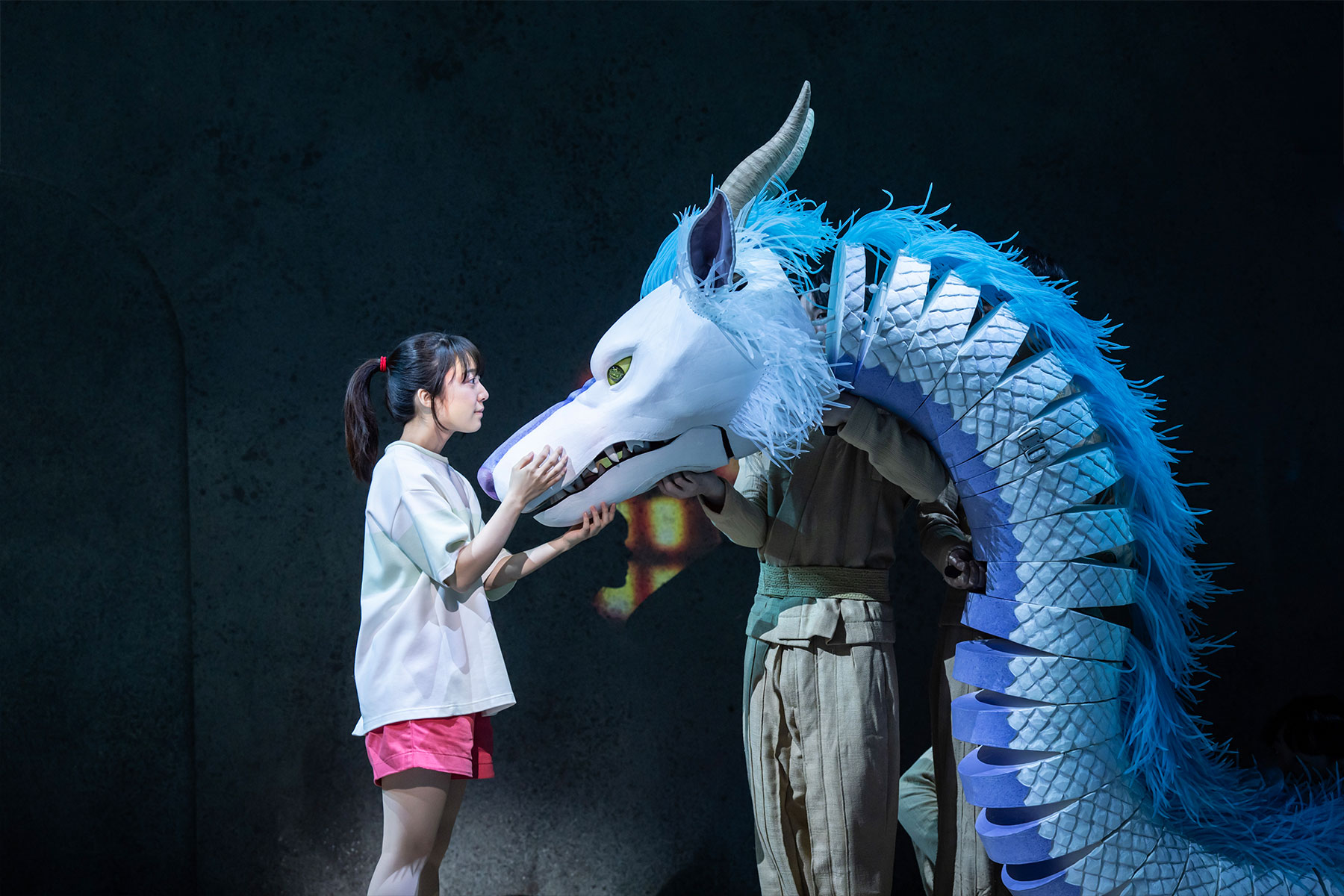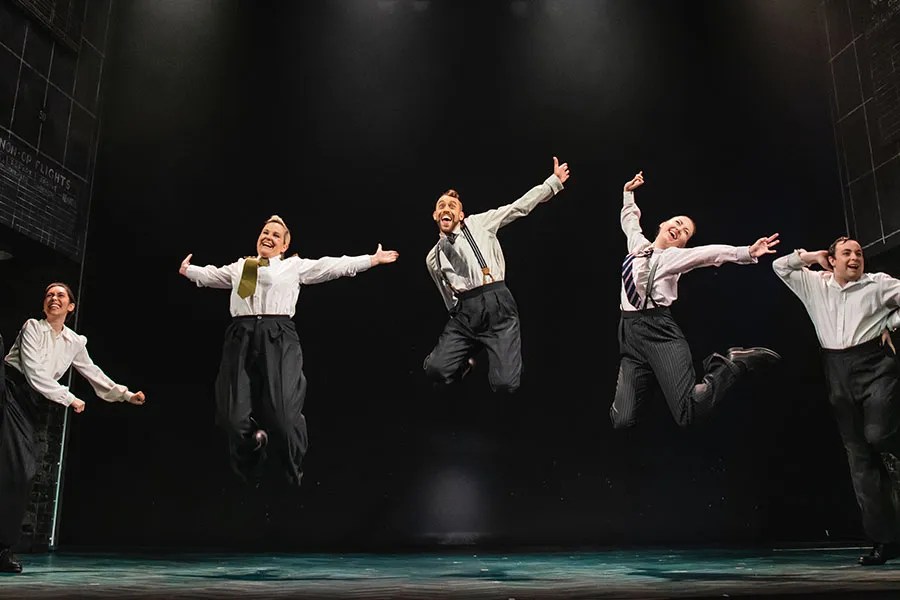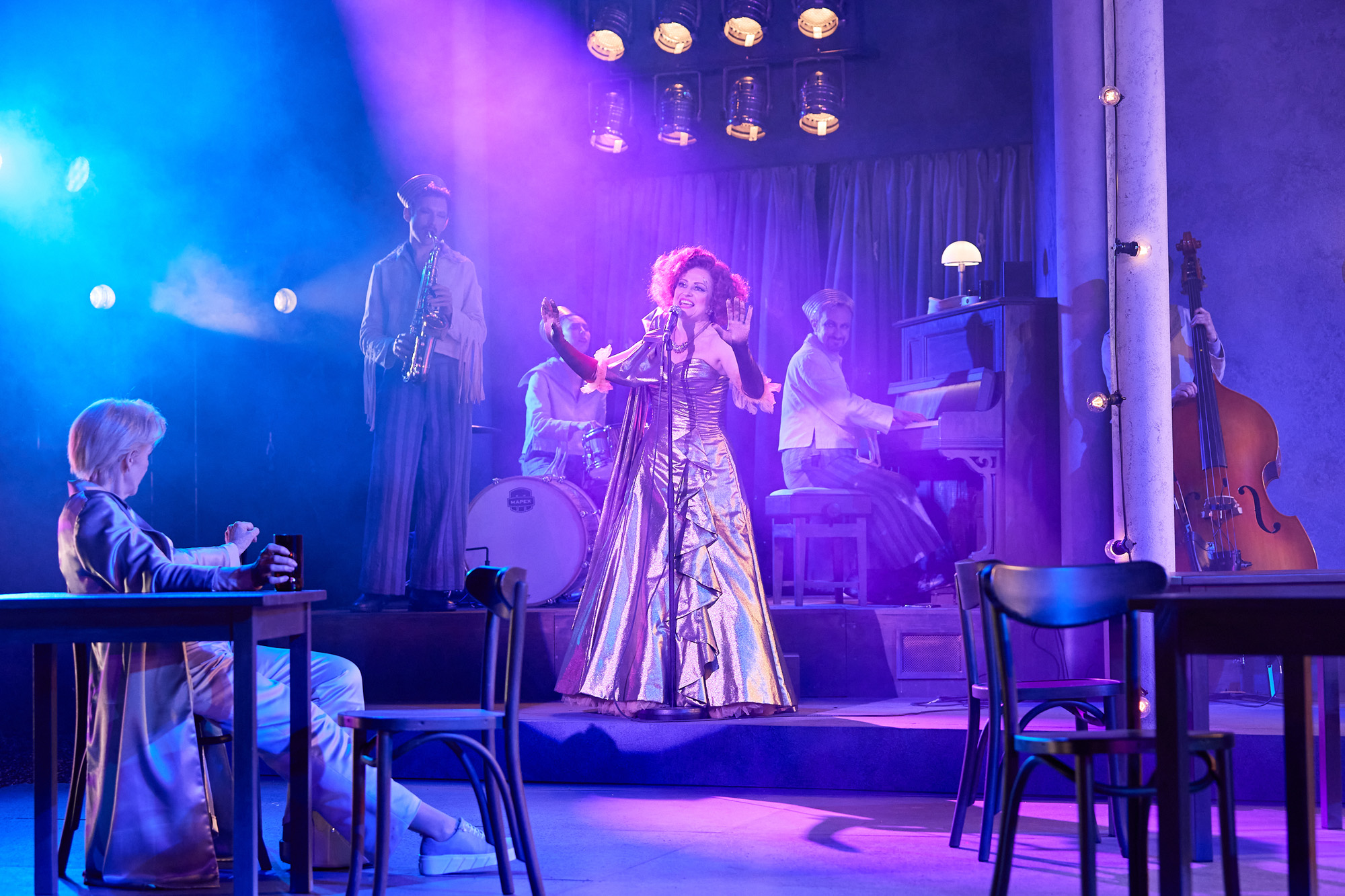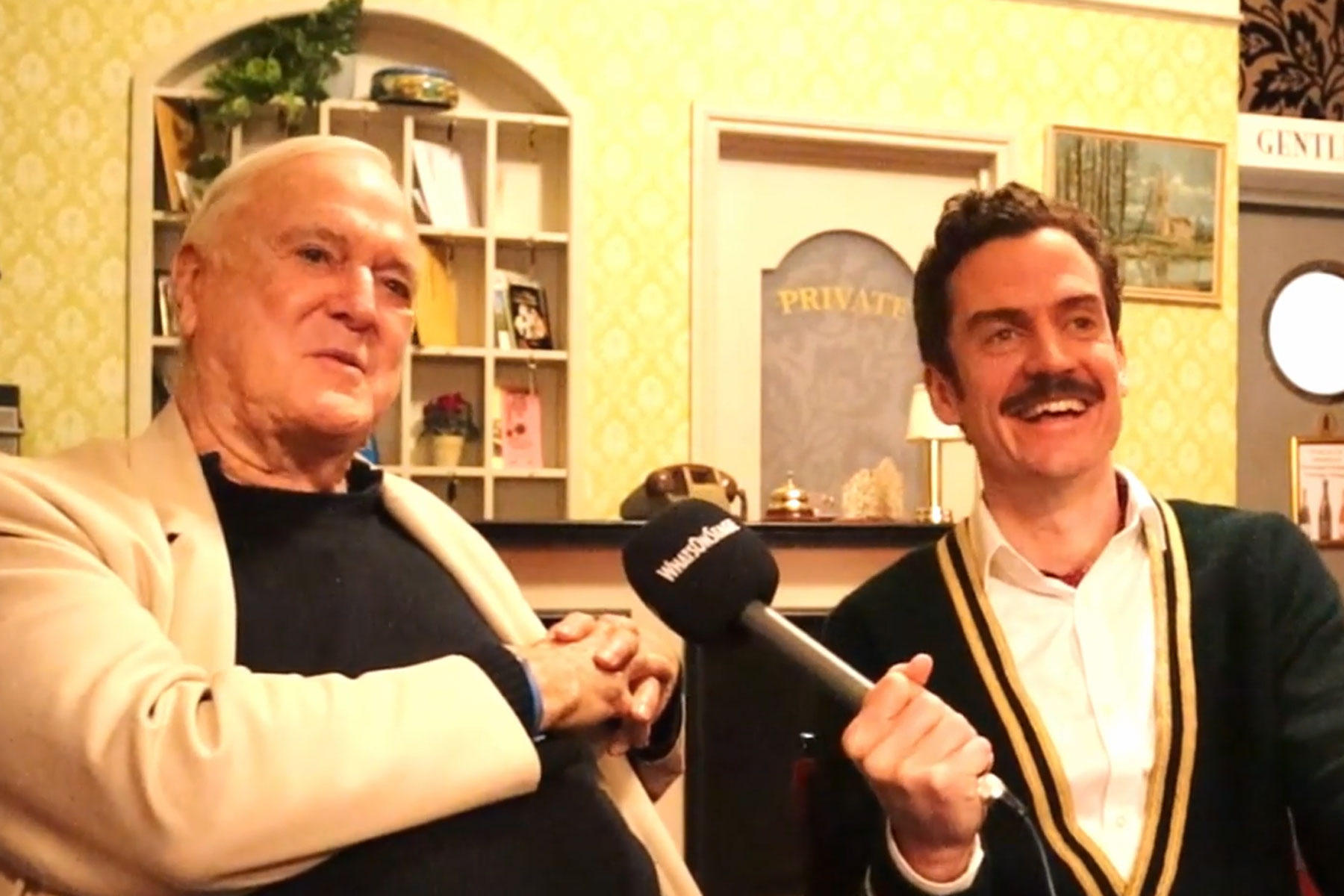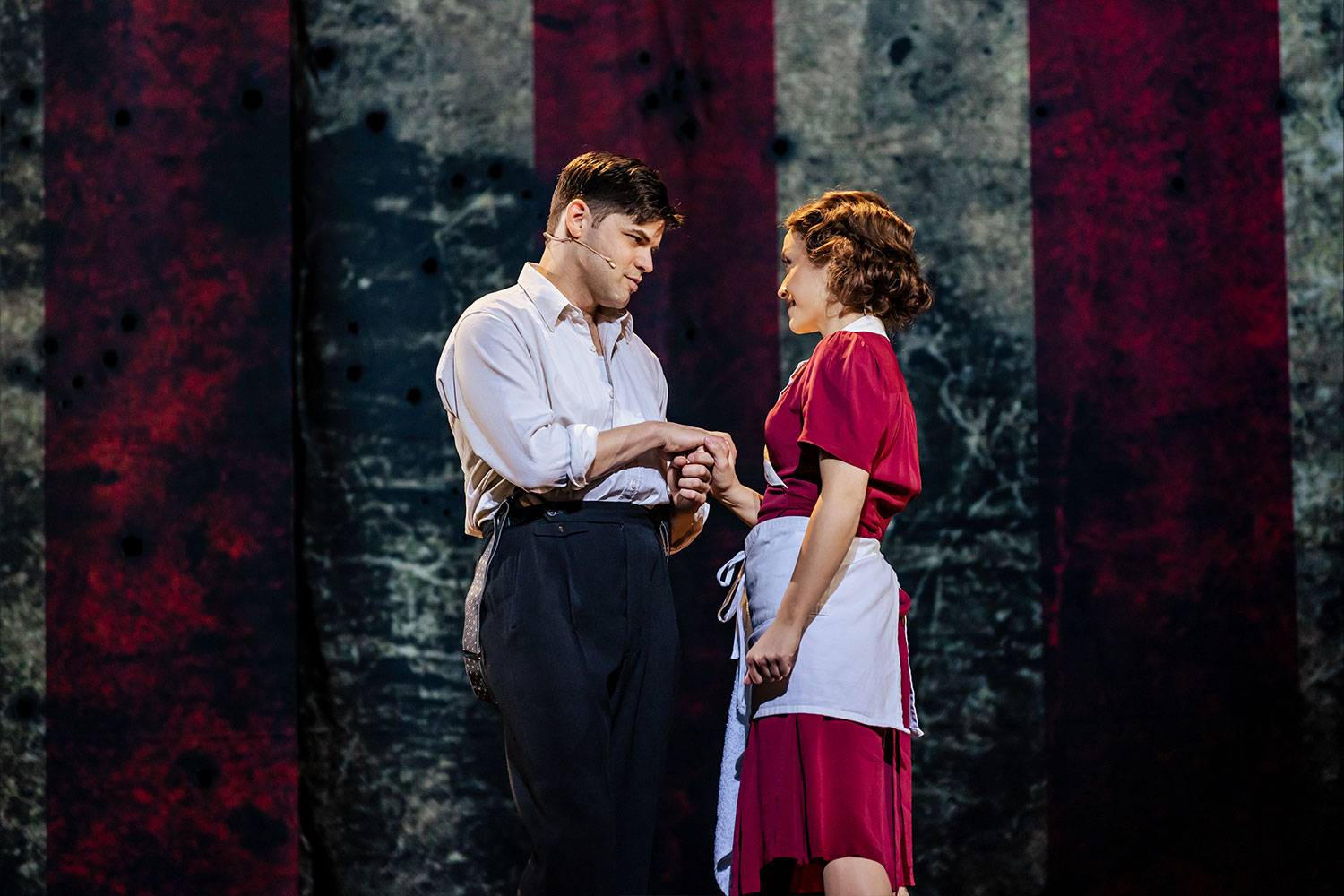West End Pays Dearly for Celebrity Worship
Stage door autograph hounds and amateur paparazzi may be happy by the rush of Hollywood stars who have lately been invading the West End, but asks WOS correspondent Mark Shenton, what about the art of theatre that they are supposed to be serving?
Just as celebrity chefs are hopefully still able to cook up a good meal despite their elevation to sometimes God-like status amongst foodies, it’s equally possible that they may be good at pastry but not at poultry. They are, in any case, forever dependent on all of the ingredients being of the right quality, too – you can’t poach a stale egg and hope for it to taste good, however fine your hollandaise sauce.
By the same token, film star status doesn’t automatically either qualify or disqualify an actor from being able to bring something unique to the stage. But the theatre is unquestionably a very different medium to the cinema, and acting skills demonstrated in one form don’t necessarily translate to the other. (Film acting is invariably close-up; theatre is much more wide-angled and requires more expansive gestures). A fine film actor doesn’t therefore automatically become a good stage actor, and vice versa. But neither is it purely a matter of experience, but also of charisma: the camera may forgive a face, as it certainly does a fluffed line (they simply re-take the scene), whereas the theatre is more exposed, less forgiving.
Ultimately, though, in the theatre as in the cinema, it’s the basic material that counts, whatever the skills or suitability of the actors performing it. Lately, the celebrity rat race has been threatening to turn the West End into a sewer of duff drama by opportunistic producers rushing to line up star vehicles, regardless of the roadworthiness of the vehicle in question.
Daryl Hannah is just the latest victim of this process, voluptuously setting out her stall on Shaftesbury Avenue, side-by-side with The Graduate which started the current rush. But the crummy vehicle in which Hannah has arrived in the stalls – a tired 1950s Broadway comedy, The Seven Year Itch – itself fatally stalls within minutes of its arrival there and needs more than the push-start of an admittedly gorgeous Hollywood actress in it to get it going again. There’s nothing wrong with Hannah, in fact, that a better part in a better play (with a better director and co-star) wouldn’t fix, so it’s not her fault. And unlike in The Graduate, where first Kathleen Turner and now model-turned-actress Jerry Hall create a nightly sensation by briefly appearing naked (as did Nicole Kidman, too, when she starred in The Blue Room at the Donmar Warehouse two years ago), there is at least the novelty that she actually keeps her clothes on.
But the theatre is about more than mere novelty or the opportunity to gaze upon celebrity skin. The play’s the thing, wherein you catch the conscience of the audience and keep them conscious.
Jerry Hall knows that: when she previously appeared in a stage version of Bus Stop in the West End a decade ago – coincidentally a rusty vehicle, like Hannah’s stage debut, also originally associated with Marilyn Monroe on screen – it quickly folded. More recently, one of television’s most popular stars, Kelsey Grammer (Frazier) lasted little over a week this summer when he attempted to give Broadway his Macbeth. In New York, a town that thrives on the cult of celebrity, neither Lauren Bacall nor Carol Burnett, two of the biggest marquee names possible there, failed to make Coward’s Waiting in the Wings or Sondheim’s Putting it Together into successes this year, either. Stars are far from guaranteed box office earners on this side of the Atlantic: when Richard Dreyfuss and Marsha Mason, reunited from the screen hit The Goodbye Girl, tried to bring another Neil Simon comedy to the stage, The Prisoner of Second Avenue, its run was cut short at the Haymarket.
On the other hand, place a star in the right vehicle, and the combination can be electrifying. Maggie Smith in Alan Bennett‘s The Lady in the Van was one of the biggest hits of this year; likewise, Kevin Spacey in O’Neill’s The Iceman Cometh was a huge hit here at the Almeida, and subsequently at the Old Vic and on Broadway. Expectations are high, too, for Jessica Lange‘s appearance in a new production of another O’Neill drama, Long Day’s Journey into Night that is coming to the Lyric. Right now, Elaine Paige is driving audiences to enjoy The King and I again at the London Palladium, and the ageless Sacha Distel, who recently took over in Chicago, is doing the same at the Adelphi.
Macaulay Culkin, in his first-ever adult acting role in the six years since he retired as a child star of such films as Home Alone and its sequel, has likewise defied most expectations to deliver a tremendous performance in Madame Melville, currently at the Vaudeville – part-boy, part-man, he has an urchin-like charm that combines innocence and knowingness and makes him perfect casting for the role of a 15-year-old boy about to lose his virginity to his French teacher.
But as a lesson to prove that you don’t always need stars if you have the right show, look at long-running West End transfer of the National Theatre’s production of Michael Frayn‘s Copenhagen. When the original cast of this serious, searching drama departed, their roles were taken over by their understudies. The play has continued to thrive, and those understudies now have understudies. Similarly, the recent West End return of The Blue Room to the Haymarket, without Nicole Kidman or Iain Glen but with two virtually unknown actors instead, has successfully focused the attention back on the play.
So stars, although they might be the icing on the theatrical cake, are not the cake themselves.



